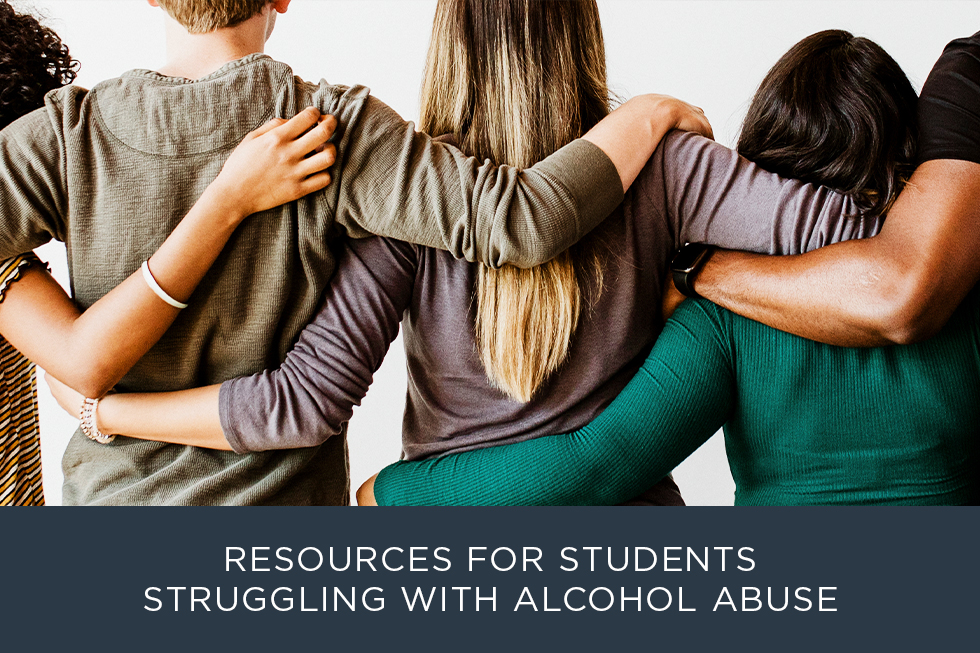Alcohol abuse is a pervasive and serious issue among college students, with the potential to cause significant disruptions to academic progress, personal relationships, and long-term health. The transition to college life presents unique challenges, including increased academic demands, exposure to new social environments, and a newfound sense of independence. These factors can contribute to the development of unhealthy drinking habits in some students. Recognizing the signs of alcohol abuse and seeking appropriate resources are crucial steps in mitigating these risks and promoting student well-being.
Signs and Symptoms of Alcohol Abuse:
- Frequent intoxication
- Increased tolerance to alcohol
- Neglecting responsibilities (academic, work, personal)
- Legal issues related to alcohol
- Withdrawal symptoms when not drinking
- Drinking alone or in secret
- Continued drinking despite negative consequences
Impact on College Life:
- Academic difficulties (poor grades, missed classes)
- Strained relationships with friends and family
- Financial problems
- Increased risk of accidents and injuries
- Mental health issues (depression, anxiety)
- Long-term health problems (liver damage, heart disease)
Resources for Support and Recovery
Students grappling with alcohol abuse have access to a wide array of resources designed to offer guidance, support, and effective recovery strategies. They can access resources to support their well-being and recovery and successfully navigate their educational journey.
On-Campus Support Services
Counseling and Health Services:
Many colleges and universities offer confidential counseling and health services tailored to the needs of students facing alcohol-related challenges.
These services typically include:
- Individual counseling sessions with licensed mental health professionals
- Group therapy sessions for students with similar experiences
- Health screenings and wellness programs to assess and promote overall well-being
- Referrals to specialized treatment programs if necessary
Peer Support and Recovery Groups:
Peer support groups create a safe and supportive space for students to share their experiences and connect with others who understand their struggles. These groups can play a crucial role in fostering a sense of community and accountability.
Some options include:
Alcoholics Anonymous (AA): A global fellowship of individuals who share their experience, strength, and hope to help each other achieve and maintain sobriety. AA offers free meetings and a 12-step program for recovery.
SMART Recovery: A science-based alternative to AA that focuses on self-empowerment and building motivation for change.
Moderation Management™ (MM): is a lay-led nonprofit dedicated to reducing the harm caused by the misuse of alcohol
Rehabilitation Centers and Outpatient Programs:
Students requiring professional medical intervention can access a range of treatment options, including:
Detoxification Services: Medically supervised detoxification to manage withdrawal symptoms safely.
Inpatient Rehabilitation: Intensive, residential treatment programs that provide 24/7 care and support.
Outpatient Treatment: Flexible treatment programs that allow students to continue their education while receiving therapy and support.
Online Resources and Helplines
Digital Support and Crisis Assistance:
Students seeking remote access to help can utilize various online resources and helplines, including:
SAMHSA National Helpline: A confidential, 24/7 helpline that provides information, support, and referrals to treatment services. Call 1-800-662-HELP (4357).
Substance Abuse and Mental Health Services Administration (SAMHSA) Website: Offers a wealth of information and resources on substance abuse and mental health.
Online Counseling Platforms: Teletherapy services that provide convenient and accessible mental health support.
Crisis Text Line: A 24/7 text-based crisis support service.
Practical Steps for Students Seeking Help
The path to recovery is unique for each student. Here are some practical recommendations based on varying levels of need:
Mild Struggles: Consider utilizing on-campus counseling services and joining a peer support group.
Moderate Concerns: Explore outpatient treatment programs and online support platforms.
Severe Cases: Seek professional rehabilitation services for comprehensive care.
Taking the first step toward seeking help is often the most challenging, but it is also the most crucial. Students are encouraged to explore the resources that best suit their individual needs and circumstances.
Take the First Step Toward a Healthier Future
Students facing challenges with alcohol use, seeking support, and utilizing available resources can pave the way to a healthier and more fulfilling college experience. Whether through on-campus services, peer support groups, professional treatment, or online resources, help is always available.
MedQuest College is committed to student well-being and offers information regarding counseling, treatment, rehabilitation, or re-entry programs for those who need assistance. For those seeking help, please speak with any staff or faculty member.
If you or a loved one are facing challenges with alcohol use, contact the Substance Abuse and Mental Health Services Administration (SAMHSA) National Helpline at 1-800-662-4357 for information on support and treatment facilities in your area.

